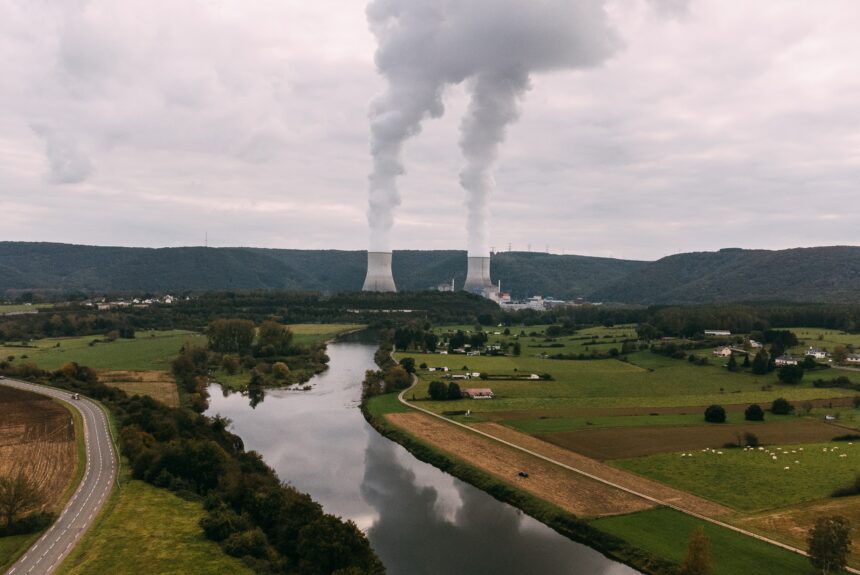Nuclear power is safe, clean, and the most reliable source of energy on the market. Despite its wide-ranging economic and environmental benefits, nuclear energy faces excessive regulatory hurdles that increase costs and stifle innovation. Recently the House Energy and Commerce (E&C) Committee held a hearing on ways to improve the licensing and permitting process with the Nuclear Regulatory Commission (NRC), the federal body that regulates nuclear power plants in the United States. The hearing marked the first time that NRC commissioners appeared before Congress in nearly two years.
>>>READ: New Nuclear Power is Coming to Ohio
Rep. Jeff Duncan (R-SC) opened the hearing by describing the importance of making America the world leader in nuclear energy and ensuring that the NRC works towards this goal rather than standing in the way:
“The benefits of nuclear energy range from grid reliability, emission reduction, and national security. New and advanced reactor technology provides exciting promise for the future of the industry. In order to achieve this promise, the NRC must be ready. Its work to license nuclear technologies and assure adequate safety of the industry is central to nuclear expansion…The NRC has been slow to update its environmental reviews and site and construction permits. It has sent uncertain signals about the policy direction of the Commission—leading to uncertainty. And its implementation of a new regulatory framework for advanced reactors has to date been a profound disappointment.”
Across the ideological spectrum, members emphasized the need for the NRC to implement a more streamlined process to bring more nuclear energy online faster. E&C Chairwoman Cathy McMorris Rodgers (R-WA) said, “To restore American nuclear leadership, we need an NRC that performs its mission with the urgency reflected in the Atomic Energy Act… We need a modern regulator that works in service to the policies established by Congress. There is no time to waste.” Chair Rodgers added, the NRC has, “overseen the completion of only two reactors from start to finish over the last forty years.”
Rep. Pallone (D-NJ) further emphasized the need to revise the licensing framework for advanced nuclear reactors. In his opening statement, he said, “I hope the Commission can make targeted revisions to the licensing framework so it can be used to safely and efficiently license advanced reactors in the future. Advanced reactors can be designed to provide enhanced safety features and produce less waste. They can come in different sizes, be constructed faster with lower construction costs, and be sited in more remote areas.”
To be sure, permitting challenges under the National Environmental Policy Act (NEPA)—which holds up clean energy projects by an average of 4.5 years—have played a significant role in delaying nuclear power plant construction. For one nuclear project, the NEPA process took nearly 8 years.
Critically, the current licensing framework at the NRC is prolonged and unnecessarily complex, which hinders the ability to bring safe, clean power online. While the nation’s nuclear power fleet is made up of large light water reactors, innovating companies are pursuing a wide range of small modular nuclear reactors (SMR). However, an overly prescriptive and technology-specific approach makes it hard for emerging technologies to enter the market. To date, the NRC has approved the design of only one SMR, NuScale’s VOYGR. The process to receive this license took seven years and cost NuScale $500 million.
To address this, Congress passed the Nuclear Energy Innovation and Modernization Act (NEIMA) of 2019. NEIMA directed the NRC to develop a new licensing pathway, known as Part 53, that would be more technology-neutral and easier for advanced reactors to complete. The proposed regulatory framework surrounding advanced reactors would promote technology-neutral, risk-informed, and performance-based principles surrounding the licensing process.
>>>READ: Dow and X-energy Collaborate on Grid-Scale SMR Project
Late last year, the NRC staff released the proposed rulemaking for Part 53, which effectively replicates the problems of the agency’s existing framework. The “new ” radiation standards borrow from the current “as low as reasonably achievable” standard which is hard and expensive for developers to reach for negligible public health benefits. As Ted Nordhaus and Adam Stein of The Breakthrough Institute write:
“Taken together, the two new frameworks in the Part 53 licensing proposal offer the worst of both worlds, marrying the old prescriptive and inflexible licensing rules to impossible risk thresholds so low that they cannot be observed epidemiologically. Needless to say, this is not a recipe for the development of an innovative and globally competitive advanced nuclear sector that can meaningfully contribute to America’s efforts to cut carbon emissions and clean up its electrical grid.”
While NRC Commissioners have ordered the staff to rewrite the new rulemaking, the problems seen in developing Part 53 highlight how the risk-averse culture of the NRC and inefficient permitting processes can slow down the development of America’s largest source of carbon-free power.
Members from both sides of the aisle expressed their displeasure with the NRC. During the hearing Rep. Frank Pallone (D-NJ) expressed concern from nuclear power stakeholders about the framework of Part 53, calling it too cumbersome and pointing out that it would prevent the construction of new advanced reactors.
Addressing climate change while providing reliable and affordable power to consumers and businesses will require a faster build-out of nuclear power. As this hearing showed, there is increasing bipartisan support for nuclear power, and policymakers agree that a faster pathway to license new reactors is necessary to bring down costs and shorten timelines. The NRC must do its part to introduce a streamlined process to bring more safe, innovative nuclear technologies online.
The views and opinions expressed are those of the author’s and do not necessarily reflect the official policy or position of C3.
